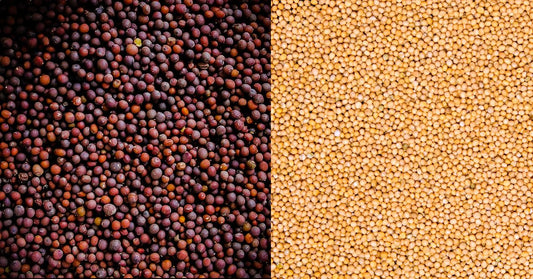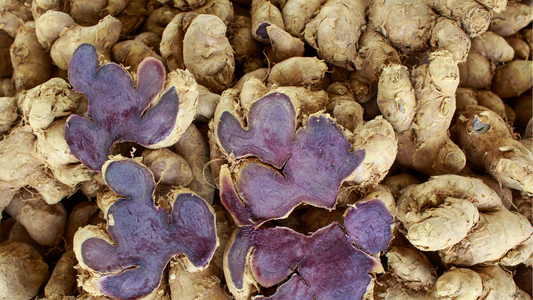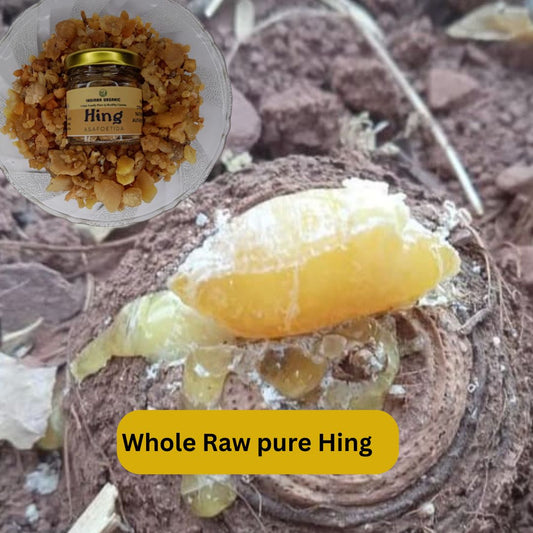How about attempting to cultivate Fenugreek in your own home garden?
Fenugreek, also known as methi, is a popular herb that is commonly used in Indian cuisine. Apart from its culinary uses, fenugreek is also known for its various health benefits. It's easy to grow fenugreek at home, and all you need is a small garden or even a windowsill. In this blog, we'll guide you on how to grow fenugreek at home.
Choose the Right Spot
The first step is to choose the right spot to grow fenugreek. Fenugreek requires a lot of sunlight, so choose a spot that gets at least 4-6 hours of sunlight every day. If you live in a hot region, choose a spot that receives partial shade during the hottest part of the day.
Prepare the Soil
Fenugreek prefers well-draining soil that is rich in organic matter. You can use a mix of garden soil and compost to prepare the soil. Make sure the soil is loose and friable, as fenugreek roots grow deep. Avoid compacted soil, as it can hinder the growth of the plant.
Sow the Seeds
Fenugreek seeds are readily available at garden centers or online. You can sow the seeds directly in the soil or in a pot. If you're sowing the seeds in the soil, make sure the soil is moist. Sow the seeds ¼ inch deep and 2-3 inches apart. If you're sowing the seeds in a pot, fill the pot with soil, leaving a few inches of space at the top. Sow the seeds ¼ inch deep and cover them with soil.
Water the Plant
Water the plant regularly, but avoid overwatering. Fenugreek doesn't like waterlogged soil. Water the plant when the soil is dry to the touch. Make sure the soil is moist, but not wet.
Harvest the Leaves
You can harvest fenugreek leaves when the plant is about 3-4 inches tall. Use a sharp pair of scissors to cut the leaves from the plant. Don't harvest all the leaves at once, as it can stunt the growth of the plant. Leave a few leaves on the plant, and it will continue to grow.
In conclusion, growing fenugreek at home is easy, and it doesn't require a lot of space. With a little bit of care and attention, you can grow fresh fenugreek leaves that you can use in your cooking or to make a healthy tea. So, go ahead and give it a try!
Managing Pest And Diseases
Fenugreek isn't prone to pests and diseases, but there are a few you need to watch out for.
Pests
Insects don’t pose much of a problem for fenugreek, except for one particular creepy-crawler called aphids. These are small sap-sucking pests feeding on the juices of the tender parts of the plant, affecting the growth. Try spraying some neem oil to combat the infestation.
Diseases
In warm weather conditions, if your plants aren't thriving then it could be because of the following diseases:
Root Rot
This fungus affects the lower leaves and causes yellowing, wilting, and stunted growth. Plants that succumb to this disease will eventually die. Planting them in well-drained soil will reduce the risk of rot.
Powdery Mildew
These white powdery spots might appear on the lower and the upper surfaces of leaves, flowers and other parts during the later stage of the plant's life. Apply neem oil if you spot these white spots.
Charcoal Rot
This fungus can cause the leaves of the plant to wilt and drop. To prevent this disease incorporate organic manure and maintain moisture level by mulching.

Organic fenugreek leaf, also known as methi leaves, has numerous health benefits. Here are some of the key health benefits of consuming organic fenugreek leaf:
-
Regulates Blood Sugar Levels: Organic fenugreek leaf is known to regulate blood sugar levels in people with diabetes. It contains compounds that help slow down the absorption of sugar in the stomach and stimulate insulin production.
-
Improves Digestion: Fenugreek leaf is a rich source of fiber, which helps improve digestion and bowel movements. It also contains compounds that help reduce inflammation in the gut and prevent digestive issues like constipation and diarrhea.
-
Reduces Inflammation: Organic fenugreek leaf contains antioxidants and anti-inflammatory compounds that help reduce inflammation in the body. These compounds help prevent chronic diseases like heart disease, cancer, and arthritis.
-
Boosts Immune System: Fenugreek leaf is rich in vitamins and minerals that help boost the immune system. It also contains compounds that have antibacterial and antiviral properties, which help prevent infections.
-
Promotes Milk Production in Nursing Mothers: Organic fenugreek leaf is known to stimulate milk production in nursing mothers. It contains compounds that help increase the production of prolactin, a hormone that stimulates milk production.
-
Reduces Menstrual Cramps: Fenugreek leaf contains compounds that help reduce menstrual cramps and other symptoms associated with menstruation. It also helps regulate hormonal balance, which can help prevent irregular periods.
Overall, organic fenugreek leaf is a nutrient-dense herb that can provide numerous health benefits. Incorporating it into your diet can help improve your overall health and wellbeing.




